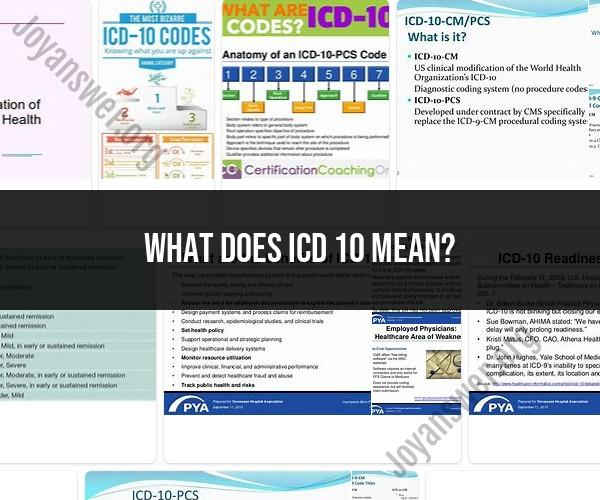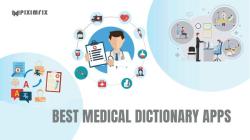What does ICD 10 mean?
ICD-10, or the International Classification of Diseases, 10th Revision, is a globally recognized system for classifying and coding medical conditions, diseases, injuries, and other health-related issues. It serves several important purposes in the healthcare field:
Medical Coding: ICD-10 codes are used by healthcare providers, medical coders, and insurance companies to document and categorize a wide range of medical diagnoses and procedures. These alphanumeric codes provide a standardized way to describe and communicate health conditions and services provided.
Billing and Reimbursement: ICD-10 codes play a crucial role in medical billing and insurance reimbursement processes. When healthcare services are provided, the corresponding ICD-10 diagnosis codes are included in insurance claims to determine payment eligibility and reimbursement amounts.
Epidemiological Research: Health organizations and researchers use ICD-10 codes to collect and analyze data on disease prevalence, trends, and outcomes. This information is valuable for understanding public health issues and planning healthcare services.
Health Records and Documentation: ICD-10 coding is used in electronic health records (EHRs) to maintain accurate and standardized patient health information. These codes help healthcare providers track and manage patient conditions and treatments.
Clinical Decision-Making: ICD-10 codes assist healthcare professionals in making clinical decisions by providing a structured way to identify and categorize medical conditions. This can aid in diagnosing patients and developing treatment plans.
Healthcare Policy and Resource Allocation: Governments and healthcare organizations use ICD-10 data to inform healthcare policies, allocate resources, and plan for public health emergencies. It helps in identifying priority areas for healthcare improvement.
International Standard: ICD-10 is endorsed by the World Health Organization (WHO) and is used worldwide as a common language for classifying diseases and health conditions. This standardization enables effective communication and collaboration among healthcare professionals globally.
ICD-10 is regularly updated and revised to reflect advances in medical knowledge, changes in disease patterns, and emerging health issues. The transition to ICD-10 from its predecessor, ICD-9, brought about more specific and detailed coding, allowing for better characterization of medical conditions.
It's important to note that while ICD-10 is used for diagnosis coding, other coding systems, such as Current Procedural Terminology (CPT) and Healthcare Common Procedure Coding System (HCPCS), are used to code medical procedures and services in the United States. These coding systems work in conjunction to document and bill for healthcare services accurately.












